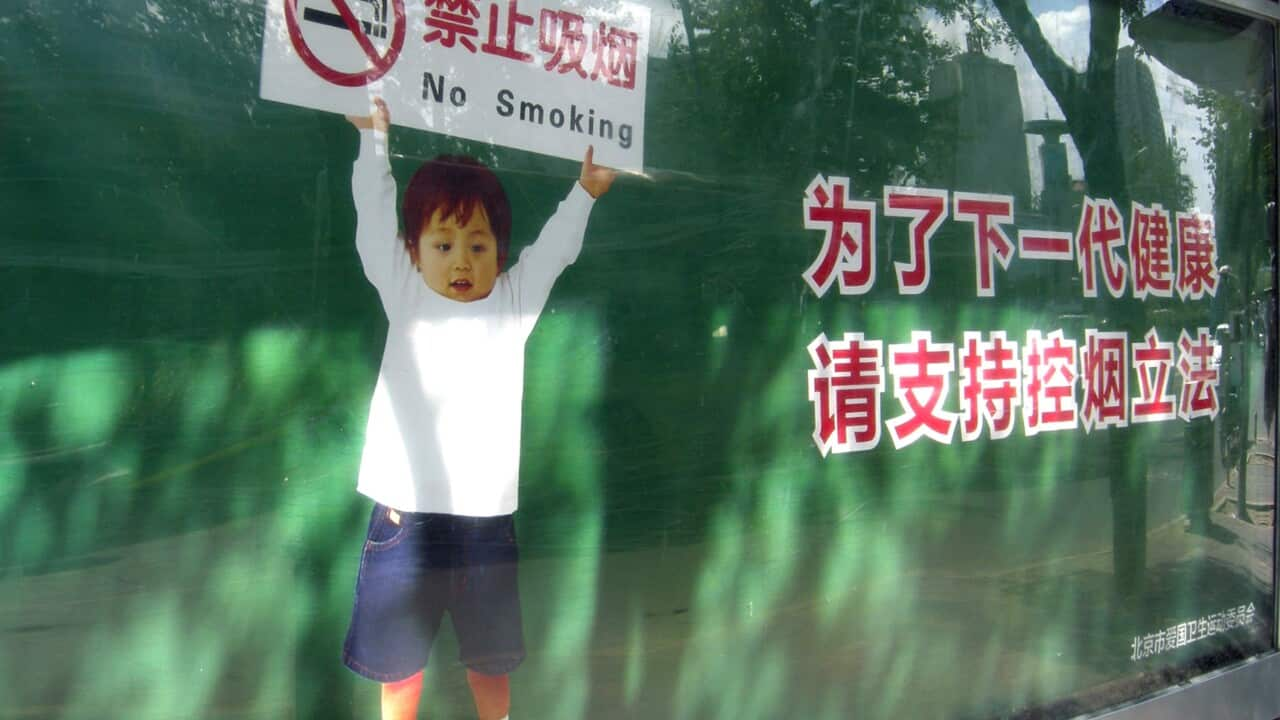China is on track to reach 200 million deaths from smoking-related diseases by the end of the century, according to a joint report by the World Health Organization (WHO) and United Nations Development Program (UNDP).
China is the largest producer and consumer of tobacco on the planet with 315 million smokers and 44 per cent of the world’s cigarettes smoked in the country.
The majority of the projected 200 million of deaths will occur in the nation’s poorest and most vulnerable communities.
The WHO and UNDP say without swift and decisive action to combat the prevalence of smoking, inequality across China will become worse.
Dr Bernhard Schwartländer, a representative of WHO in China, cautioned that if no effort is made to reduce the country’s smoking dependency, the results could have a devastating effect on the nation’s health and economy.
“The rapid increase in costs associated with tobacco use in China is unsustainable, the report reveals, estimating the total annual economic cost in 2014 at ¥350 billion (AUD 75.5 billion), an increase of 1,000 per cent since 2000,” he said.
In China, 28 per cent of the population - and 50 per cent of men - are smokers.
Dr Schwartländer told SBS News that these statistics meant an alarmingly high number of future Chinese deaths could be tobacco-related.
Watch: China's deadly battle with smoking
“Tobacco is the only product that when used as designed actually kills half of the people eventually,” he said.
“So that means a third of all Chinese young men today may actually die of tobacco-related illnesses.”
The WHO and UNDP make several recommendations for handling the crisis.
One is raising the retail price of cigarettes, which World Bank Country Director for China Bert Hofman says is a sure-fire way to reduce tobacco intake.
“Raising tobacco taxes is one of the most cost-effective measures to reduce tobacco consumption, while also generating substantial revenue for health and other essential programs – investments that ultimately benefit the entire population,” he said.
The effectiveness of this method has already been proven in China, with a tobacco tax increase in 2015 resulting in a reduction of cigarette sales from the year before – the first time this has occurred in 20 years.
However, the rise in cigarette prices has been significantly lower than the average increase in salaries, making tobacco in China more affordable.
The report calls for a 50 per centrise in the retail cost of cigarettes, followed by future price hikes.
The WHO and UNDP believe this change could lead to 47 million fewer male smokers and 20 million fewer premature deaths as a result.
It could also increase Government revenue by ¥442 billion (AUD 87.4 billion).
The WHO and UNDP also recommend the requirement that all indoor public places are 100 per cent smoke-free, with three of China’s major cities - Beijing, Shenzhen and Shanghai – already implementing smoke-free laws.
But Hu Angang of Tsinghua University told SBS news that more cities need to join the initiative.
“So far only 18 cities ... have tobacco control measures. This means it covers only 10% of China's population. So 90% of the population is still unprotected by tobacco control,” he said.
Additional reporting by Katrina Yu
Share



